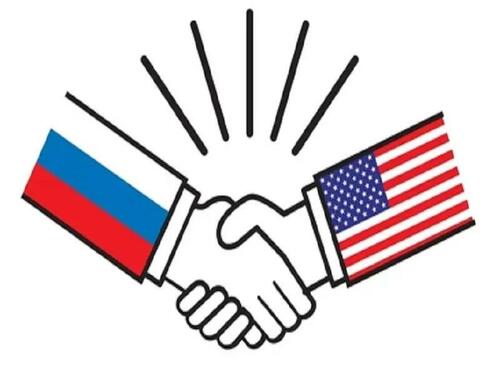Authored by Andrew Korybko via substack,
Russia and the West exchanged 24 prisoners on Thursday in the largest such swap since the Old Cold War. The Wall Street Journal (WSJ) and CNN published detailed reports about the diplomacy that led up to this deal, which included the WSJ’s Evan Gershkovich and Russia’s Vadim Krasikov as the highest-profile exchanges. The New York Times also shared brief bios about the others who were swapped.
Here are the top five takeaways from this historic deal that most observers might have missed:
1. Germany Was Responsible For Holding Everything Up
Russia conveyed that it won’t agree to any swap without the release of Vadim Krasikov, who was jailed in Germany for assassinating a Chechen terrorist that President Putin told Tucker Carlson had driven his car over the heads of Russian prisoners, among his other crimes. Germany balked for a while though due to the “morality” of releasing a convicted killer that’s serving a life sentence, but the US convinced it to go along with this, especially since Russia and Belarus agreed to release jailed Germans as part of the deal.
2. Poland, Slovenia, and Norway Chipped In But Got Nothing In Return
A total of four Russians who were imprisoned in the aforementioned countries were also released even though their governments didn’t get anything in return. This suggests a concession on the West’s part, albeit one that enabled Russia to make its own such concession that’ll be touched upon in the next point for turning this deal into the largest one in decades. Those three Western countries are presenting this as an “act of solidarity”, but it’s really proof of the US’ hegemonic power over them.
3. A Russian “Government-In-Exile” Will Likely Soon Take Shape
Eight members of Russia’s non-systemic “opposition” were also sent to the West as part of this deal. They’ll predictably soon set up a “government-in-exile”, which might generate lots of media attention but fail to have any influence inside of Russia. Their inclusion in this swap made it appear more “moral” in Germany’s eyes and thus helped convince it to agree. It can also be understood as a reciprocal concession for freeing the four Russians mentioned above from Poland, Slovenia, and Norway.
4. Turkiye’s Role In Facilitating This Swap Positions It To Host The Next Round Of Peace Talks
For as noble as China, India, and Hungary’s efforts are in trying to mediate a resolution to the Ukrainian Conflict, Turkiye has a much better chance of doing so than they do. Its role in facilitating this latest swap builds upon the earlier ones that it facilitated, which show that Russia and the West still regard it as a neutral middleman. This suggests that they’d agree to it hosting the next round peace talks along the lines of spring 2022’s ultimately sabotaged ones once all parties are ready instead of looking elsewhere.
5. Kamala Will Try Politicizing This Swap To Discredit Trump
Trump claimed earlier this spring that only he could secure Gershkovich’s release and that he’d get Putin to agree to this as a favor without receiving anything in return, yet the this week’s historic swap proved him wrong. In response, Trump suggested that the deal was lopsided despite the West getting twice as many people as Russia did, and he also speculated that cash was paid for them too. Kamala will certainly try politicizing this swap to discredit Trump, but it’s unclear whether voters will care all that much.
* * *
Altogether, each side in this swap got what they wanted, and it represents a rare example of successful New Cold War diplomacy. Reflecting on the top five takeaways, the last two are the most significant, but neither can be taken for granted with respect to Turkiye hosting the next round of peace talks (let alone anytime soon) and Kamala’s politicization of this swap having any effect on the presidential race. Even so, they’re what observers should monitor to see whether anything meaningful comes of them.
